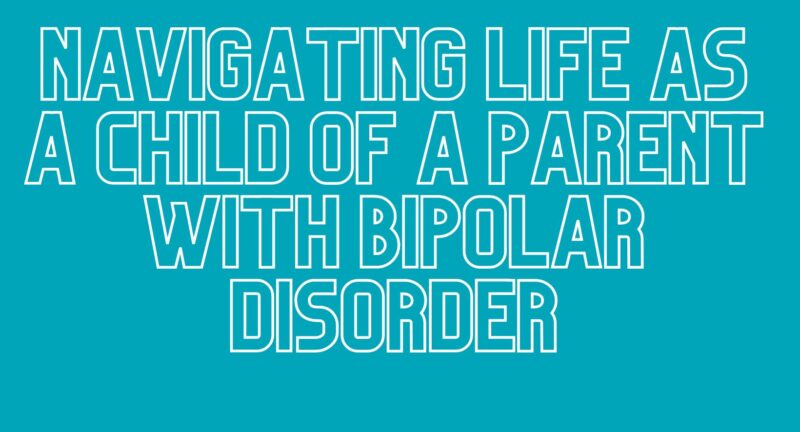
How Spring and Daylight Savings Affects Hypomania
Bipolar disorder affects 4.4% of all adults at some point throughout their life, and about 2.8% of adults have been diagnosed with bipolar disorder in the last year, according to the National Institutes of Mental Health. Out of the adults diagnosed with bipolar disorder, nearly 83% experience extreme disruptions to their daily routines. Bipolar disorder is a mental health illness characterized by extreme shifts in mood that vacillate between manic episodes and depressive episodes, although each episode impacts your quality of life differently.
Interestingly, manic and hypomanic episodes tend to increase in the spring in the Northern hemisphere. In this article, we’ll help shed light on what manic episodes, why they tend to increase in the spring, and what you can do to stay proactive and reduce their impact on your quality of life.
What Is a Manic Episode?
According to the American Psychiatric Association’s Diagnostic and Statistical Manual of Mental Disorders (DSM-5), a person must have experienced at least one episode of mania or hypomania in order to be diagnosed with one of the bipolar disorders (in addition to the depressive episodes too.) A manic episode is more than just a mood swing. It is an emotional state in which a person may feel elevated or excessively irritable. Manic episodes can last anywhere from four days to a few months.
At first, you might not think that an elevated mood is a bad thing, and because of this, many people might not seek help at first. However, it’s important to note that mania isn’t just “feeling good”; rather, these symptoms are a departure from what’s normal for your i.e., your normal actions or behaviors.
Mania can be so intense that it can impact your performance at work and interfere with your relationships with friends and family.
How Spring Affects Hypomania and Mania
According to a study published in Psychiatry Investigation, the changes in light (and its impact on circadian rhythms) may be the culprit of increased hypomania episodes in the spring. According to researchers:
“A possible mechanism underpinning these relationships is a misalignment between the endogenous and environmental circadian rhythms due to acute circadian rhythm shifting caused by the increased light exposure in the spring.”
In other words, if you’re sensitive to seasonal changes and/or light changes, you may see changes in your bipolar symptoms. Some people with bipolar disorder are more sensitive to light than others: “The extra daylight, the lifting of winter’s gloom and the experience of again being outside in the bright, fresh, springtime air, all serve to activate bipolar neurochemistry.” (Source)
Why Treatment Matters for Manic Episodes
 “One of the most dangerous aspects is that multiple untreated manic or hypomanic episodes can be very harmful to the brain. They can sometimes even lead to cognitive impairment and/or decreasing IQ over time. (This can happen because leaving mania untreated is a lot like running a car eighty miles an hour all day, every day. Eventually the motor—the brain—will break down.),” says Dr. Brian Briscoe.
“One of the most dangerous aspects is that multiple untreated manic or hypomanic episodes can be very harmful to the brain. They can sometimes even lead to cognitive impairment and/or decreasing IQ over time. (This can happen because leaving mania untreated is a lot like running a car eighty miles an hour all day, every day. Eventually the motor—the brain—will break down.),” says Dr. Brian Briscoe.
The right treatment can also:
- Improve the quality of your life
- Can help you engage in relationships
- Can better equip you to succeed in the workplace
- Help stabilize mood changes and reduce symptoms
- Help prevent future manic or depressive episodes from occurring and reduce their overall intensity
Treatment for Manic Episodes
The primary treatments for bipolar disorder include medications (including mood stabilizers) and psychotherapy to control symptoms.
In addition to psychiatric care, there are many lifestyle changes that can support your mental well-being. This includes maintaining a regular exercise schedule, following a balanced, nutrient-dense diet, and attending your therapy sessions. For people who are more sensitive to changes in light, it’s even more important to practice good sleep hygiene practices.
Good sleep hygiene practices include:
- Going to bed at the same time every night
- Sleeping in a cool, dark room
- Avoiding TV or phone screens for 1-2 hours before bed
- Using the “night mode” on electronics in the evening
- Spending time outside in the morning (helps to set your circadian rhythm)
- Exercising (but not too close to bed)
In addition, it’s essential to adhere to your recommended medication schedules. If you need help remembering to take medication, try setting a reminder on your phone.
The Right Treatment Can Help
If you, or someone whom you love, are struggling with bipolar disorder, we can help. To make an appointment, call our office at 502-339-2442 or get in touch with us at to book an appointment with one of our compassionate and non-judgmental providers.
And please, if you’re not comfortable getting help from us, get help from another qualified doctor or therapist.
Because you can count on this: Life and the future, even with bipolar disorder, can and will be much brighter with treatment.
Related Posts
How Spring and Daylight Savings Affects Hypomania
Bipolar disorder affects 4.4% of all adults at some point throughout their life,...
Thriving Under One Roof: Navigating Life as the Child of Someone with Bipolar Disorder
Growing up with a parent who has bipolar disorder can be...


